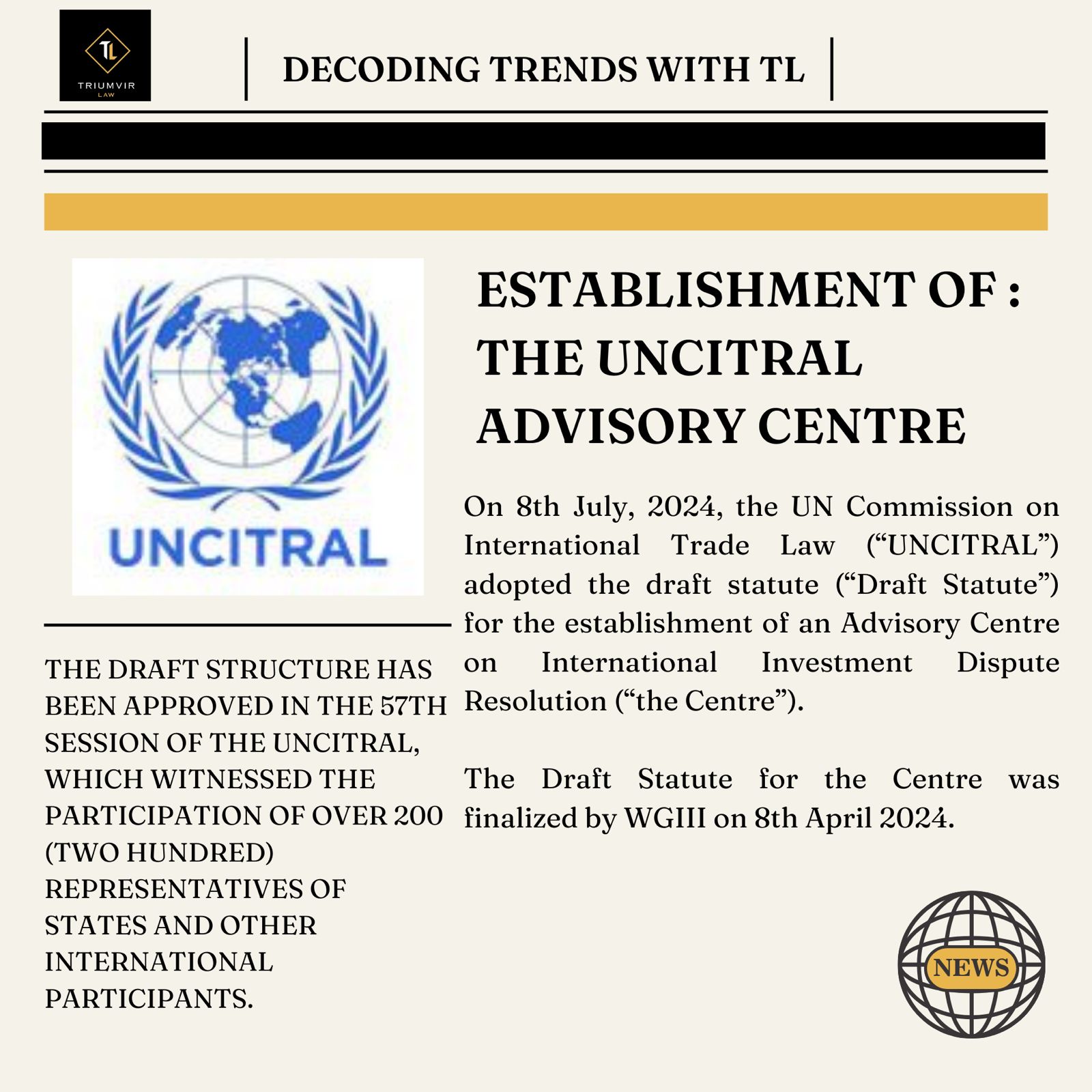
Decoding Trends With Trumvir Law

Constitutional Validity of Arbitration Agreements: Analysing the Supreme Court Judgment in Lombardi Engineering Limited vs. Uttarakhand Jal Vidyut Nigam
- March 14, 2024
- Decoding Trends With Triumvir Law
- Gagan Narang
Introduction:
On November 6, 2023, the Hon’ble Supreme Court of India delivered a significant judgment in the case of Lombardi Engineering Limited vs. Uttarakhand Jal Vidyut Nigam. This judgment addresses the validity of a pre-deposit condition for initiation of arbitration in an Arbitration Agreement vis-à-vis the Fundamental Right to Equality under the Constitution of India. This ruling has implications for the scrutiny of arbitration clauses and their compliance with constitutional principles.
Background:
The case revolves around the contention that the court, while considering an application under Section 11(6) of the Arbitration and Conciliation Act, 1996, should not evaluate the reasonableness of conditions in the arbitration clause based on Article 14. Section 11(6) of the Act confers powers on the Court to appoint an arbitrator in case the parties, for reasons as listed, fail to appoint one.
The facts concern a contract between Uttarakhand Jal Vidyut Nigam Ltd. (UJVNL) and Lombardi Engineering Limited, a worldwide design consultant business based in Switzerland, where a pre-deposit condition turned into a major source of disagreement. As was previously indicated, the condition required that the party filing the arbitration claim deposit 7% of the arbitration claim as a security deposit in the form of a Fixed Deposit Receipt. The case would be referred to a Sole Arbitrator chosen by the Respondent upon the satisfaction of this requirement.
In a letter dated May 6, 2022, the petitioner requested that the respondent designate an arbitrator in line with the ratio established in Perkins Eastman Architects DPC and Others v. HSCC (India) Limited (2020). In response, the Respondent terminated the agreement on May 9, 2022, claiming that the contractual requirement had not been fulfilled.
The core of the dispute revolved around the validity and enforceability of the arbitration clause, specifically concerning the stipulation that the petitioner must deposit 7% of the arbitration claim as security.
While the Petitioner relied on the judgment of ICOMM Tele Limited v Punjab State Water Supply and Sewerage Board and Anr. [2019 SCC 391], the respondent argued that such scrutiny should be limited to petitions under Article 226 of the Constitution only. Respondents further emphasized the crucial purpose of the security deposit outlined in the Contract between the parties: to safeguard against frivolous claims and ensure the project’s uninterrupted progress by discouraging baseless disputes.
Key Points:
The court rejected the arguments raised by the respondent that the Courts, in a Sec. 11 petition, are required to only anaylize the existence and validity of the arbitration agreement and not the arbitrability of the same. Rejecting such a presumption, the apex court asserted that it has the authority to assess the validity of arbitration clauses, specifically under Article 14. Drawing parallels with international judgments, such as the Supreme Court of Canada’s decision in Uber Technologies v. Heller [2020 SCC 16], the court deemed certain pre-conditions as unconscionable and unenforceable.
Analysis:
A three-judge bench of Chief Justice Dhananjaya Y. Chandrachud, Justice J.B. Pardiwala and Justice Manoj Misra, in its analysis, distinguishes between the judgments in S.K. Jain [(2009) 4 SCC 357] and ICOMM Tele Limited, asserting that they are not in conflict. The focus is on whether the arbitration clause in Clause 25(viii) is arbitrary and violates Article 14 of the Constitution. The court refers to legal precedents, including A.L. Kalra v. Project and Equipment Corporation of India Ltd. [(1984) 3 SCC 316], to establish that arbitrariness contradicts the principle of equality under Article 14. The judgment in ICOMM Tele Limited is discussed for its consideration of the 10% “deposit-at-call” to prevent frivolous claims.
The judgment concludes by affirming that even if a claim is frivolous, the arbitral tribunal has the authority, under Section 31A of the Arbitration and Conciliation Act, 1996, to award costs, considering various factors such as party conduct and unreasonable counterclaims.
The judgment discussed the issue of whether the validity of the pre-deposit condition in Clause 55 of the agreement can be examined under Article 14 of the Constitution in a petition under Section 11(6) of the Arbitration and Conciliation Act, 1996. The court rejects the argument that such validity cannot be scrutinized in this context.
Referring to a judgment from the Supreme Court of Canada in Uber Technologies v. Heller [supra], where an upfront administrative fee for arbitration was deemed unconscionable and unenforceable. The court also cites instances from the United States, like Patterson v. ITT Consumer Financial Corporation [2019 SCC Online SC 1517], where certain arbitration requirements were considered unconscionable.
The conclusion emphasizes that, based on the discussion, the court decides to disregard two conditions in Clause 55 of the GCC: one related to a 7% deposit of the total amount claimed and the other empowering the Principal Secretary (Irrigation) of the Government of Uttarakhand to appoint a sole arbitrator. Instead, the court opts to appoint an independent arbitrator.
The Apex Court further remarked that the concept of ‘party autonomy’ should not undermine the fundamental rights of the Citizens. The court went on to analyse Kelson’s Pure Theory of Law to stress the supremacy of the Constitution where the Constitution is the Grundnorm. It placed the Arbitration and Conciliation Act 1996 and other statues below the Constitution and placed the Arbitration Agreement itself last in the hierarchy.
Conclusion:
In concluding the analysis, the Hon’ble Supreme Court decided to disregard two specific conditions in Clause 55 of the General Conditions of Contract and appointed an independent arbitrator instead. This judgment sets a precedent for the scrutiny of arbitration clauses in India, emphasizing the importance of constitutional principles and fairness in contractual agreements. The decision contributes to the ongoing discourse on the balance between arbitration efficiency and protecting the rights of the weaker parties involved.
RECENT POST
SOCIAL SHARE
Related Post

Budget Takeaways 2024-25
Decoding Trends With Trumvir Law The Budget for FY 2024-2025, presented on July 23, 2024, aims to advance India’s growth

The Transformation of Criminal Law in India: A Comprehensive Overview
Decoding Trends With Trumvir Law India’s legal landscape witnessed a seismic shift on July 1, 2024, with the introduction of

Empowering Arbitration: The Advisory Centre on International Dispute Resolution
Decoding Trends With Trumvir Law I. Introduction On 8th July, 2024, the UN Commission on International Trade Law (“UNCITRAL”) adopted

